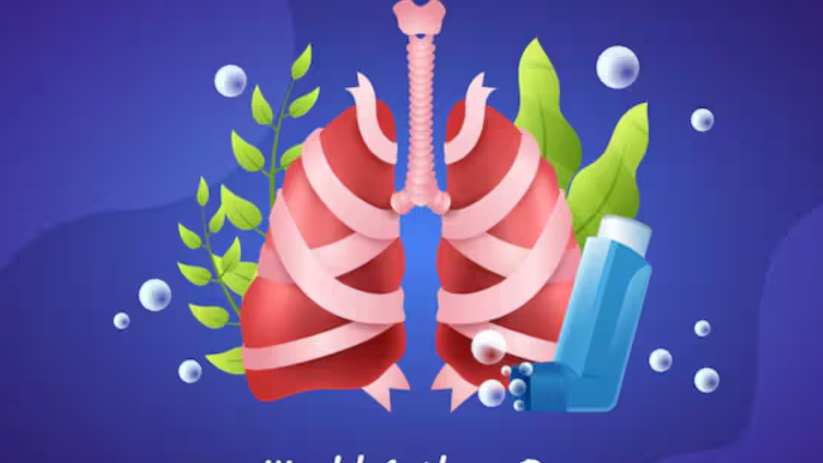

World Asthma Day is observed annually on the first Tuesday of May to raise awareness about asthma, a chronic respiratory condition that affects millions worldwide. In 2025, this day falls on May 6. The theme for this year's observance, as highlighted by the Global Initiative for Asthma (GINA), is “Make Inhaled Treatments Accessible for All!” This theme underscores the importance of ensuring that effective asthma medications are available and accessible to everyone, regardless of their geographical location or economic status.
What is Asthma?
Asthma is a chronic lung disease characterized by inflammation and narrowing of the airways, leading to difficulty breathing. It affects individuals of all ages and is one of the most common chronic diseases among children. Symptoms can vary from mild to severe and may include:
Persistent cough, especially at night
Wheezing during exhalation
Shortness of breath or difficulty breathing, even at rest
Chest tightness, making it hard to take a deep breath
These symptoms can be triggered or worsened by factors such as allergens, air pollution, respiratory infections, cold air, and physical activity.
Causes and risk factors
The exact cause of asthma is not fully understood, but it is believed to result from a combination of genetic and environmental factors:
Genetic predisposition: Having a family history of asthma or other allergic conditions increases the risk.
Environmental exposures: Exposure to allergens like pollen, mold, dust mites, tobacco smoke, and air pollution can contribute to the development of asthma.
Respiratory infections: Viral infections during early childhood can affect lung development and increase asthma risk.
Obesity: Being overweight or obese is associated with an increased risk of asthma.
Treatment and management
While there is no cure for asthma, it can be effectively managed with the right treatment and lifestyle adjustments:
Medications:
Controller medications (e.g., inhaled corticosteroids) reduce inflammation and prevent symptoms.
Rescue inhalers (e.g., short-acting beta-agonists) provide quick relief during an asthma attack.
Biologic therapies are newer treatments that target specific pathways in the immune system and are used for severe asthma cases.
Lifestyle modifications:
Avoid known triggers such as allergens and tobacco smoke.
Maintain a clean indoor environment to reduce exposure to dust mites and mold.
Engage in regular physical activity, as advised by a healthcare provider.
Develop and follow a personalized asthma action plan in consultation with a healthcare professional.
In low- and middle-income countries, access to essential asthma medications remains a significant challenge. Efforts are ongoing to improve the availability and affordability of these treatments to reduce asthma-related morbidity and mortality.
The Importance of Education
Education plays a crucial role in asthma management. The World Health Organization emphasizes that empowering individuals with asthma through education can lead to better disease control and improved quality of life. Key educational components include:
Global Initiative for Asthma - GINA
Understanding asthma and its symptoms
Proper use of inhalers and other medications
Identifying and avoiding asthma triggers
Recognizing when to seek medical help
Global Initiative for Asthma - GINA
Asthma education can be delivered through various channels, including healthcare providers, schools, and community programs. Additionally, digital tools and mobile applications are increasingly being used to support asthma education and self-management.